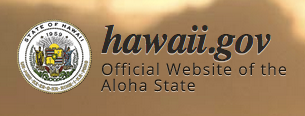
The question of whether government should charge for APIs and other digital services came up again this week during a Google Hangout I did with Luke Fretwell(@lukefretwell) of @GovFresh. I began exploring this concpet last year in my post, Should the Government Subsidize and Profit from Data Market, after talking with several city government open data folks.
Luke had pointed me to a page on the Hawaii.gov website that described their subscriber services:
A subscriber account offers the benefit of monthly invoicing and payment and provides convenience to users who conduct large volumes of online transactions through our website. In some cases, a subscriber account is also required to access a specific online service.
Many people I talk to in the open data space have reacted negatively when I propose the idea of government charging for access to services, but as reflected in Hawaiis approach, this is just for higher volume and heavy commercial use cases.
It costs money to gather and organize government data, design, deploy and manage APIs. I feel strong that many of the resources coming out of government should be free and open for access, but in the cases where it is incurring huge costs for government to provide, it might make sense to pass costs off to consumers.
Think of any other physical government assets like city, county, state, or national parks. These are open for anyone to access, and many are even free, but if you want to use them for commercial purposes, you have to pay. Virtual resources should be seen in a similar light.
However, this could easily evolve into a negative analogy, because park access fees sometimes can seem ridiculous, and I want to incentivize consumption of government open data and APIs through as wide of access as possible--not scare people away.
My goal here is to not take a for or against stance, but to stimulate conversation around the topic and see where it makes sense to apply. I don't think government charging for access is applicable in all areas of open data and APIs, but if it will ensure better quality of service and potentially fund new data and APIs, I think it can be a good idea. What do you think?

